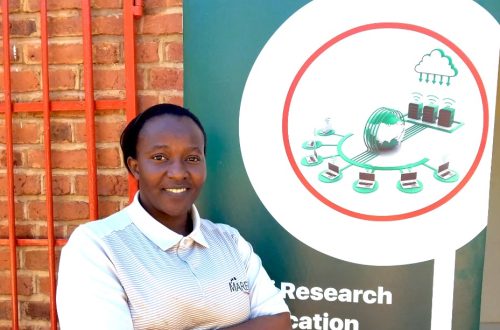
Dr. Edwin Khundi, a lecturer in Biomedical Engineering at the Malawi University of Science and Technology (MUST) and one of the leading organisers of the Malawi Hackathon, actively participated in the workshop on High-Performance Computing (HPC), Data Analytics, and Big Data organized by MAREN in partnership with ASNET-AM. In this interview, Dr. Khundi shares valuable perspectives on the enriching experience gained during this comprehensive training program.
MAREN: You have been actively participating in the HPC, Big data, and Data Analytics workshop. How has this experience been beneficial for you as both a lecturer and the organizer of the Malawi Hackathon?
EK: As a lecturer, I’ve gained valuable insights into incorporating high-performance computing in research and teaching, particularly in my field of medicine where dealing with big data is common. The workshop has equipped me with skills essential for analyzing complex files efficiently. As the leader of the Malawi Hackathon, it has provided us with crucial skills to successfully conduct the competition, training students in using the platform to develop and test software.
MAREN: For those unfamiliar with HPC, how would you describe it in terms that are easy for the layman to understand?

Dr Khundi, (third from right) poses with the Malawi Hackathon members and HPC trainer Dr. Hrachya Astsatryan(fourth from left).
EK: For a layman, I’d compare it to using a calculator for basic arithmetic. When faced with larger mathematical problems, you turn to a calculator. Similarly, when dealing with more extensive issues, HPC comes into play, solving problems that regular computers cannot handle.
MAREN: Regarding access, how do users reach the HPC?
EK: The advantage of HPC is its remote accessibility; users don’t have to be physically present at the facility. It’s also an open resource, meaning it’s free for everyone with the necessary credentials to log in and access the system remotely.
MAREN: Beyond analyzing data sets, we’ve heard there are additional services HPC can provide. Could you elaborate on these services?
EK: Currently, the services depend on the features activated by the MAREN team, who are the administrators of the system. While we primarily use it for data analysis, HPC can be beneficial in various sectors. For instance, in telemedicine, it accelerates the processing of medical images, aiding doctors in identifying abnormalities or injuries swiftly.
MAREN: As a lecturer, how do you plan to ensure that the skills you’ve acquired and the awareness generated are shared with your colleagues and interested students?
EK: Our mandate is to train others, and I am responsible for organizing training sessions for colleagues and students. Specifically, for the hackathon, we’re developing a series of training sessions to impart the necessary skills on HPC usage.
MAREN: Beyond this training program, as an academic and researcher, what other fields or areas do you believe can benefit from the MAREN -ASNET -AM twining programme?
EK: The training program covers big data and analysis, but there are numerous areas such as computational medicine or bioinformatics where decisions are made based on large datasets from medicine, experiments, or laboratory tests. The training can prove beneficial in various fields.
MAREN: Let’s shift focus to the hackathon. How are the preparations going, and what sets this edition apart?
EK: Currently, we’re in the planning stage, having submitted a proposal for feedback. We’re working on improving the proposal based on the received feedback, and the next step involves budgeting sessions with authorities. We tentatively plan to host over 100 students, making it a substantial hackathon. Extensive preparation is essential, considering it is a significant event involving both public and private universities.
Subscribe To Our Newsletter
Get updates and learn from Us
More To Explore

Bridging the Gender Gap in Tech: MAREN’s Wyness Chide Joins the Women Techsters Fellowship
At a time when efforts to bridge the gender gap in tech are more vital

MAREN Introduces SSL Certificates: Enhancing Online Security
We are excited to announce that MAREN in liaison with Sectigo —a well known global
